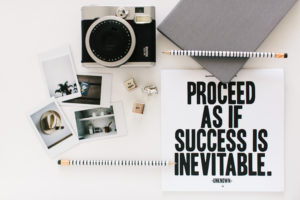Conflict in Writing

51359617 -123RF Copyright
Ugh! I hate conflict! What happened to peace and goodwill towards men?
But as I was editing my novel, I realized my hatred for conflict had carried over into my story. I didn’t want conflict in my story. I wanted it to be happy and create joy and make everyone—including me—feel GOOD! To heck with conflict!
But a story needs conflict to survive. Real life, and real goals, are met with daily conflict, whether it’s getting up on time or meeting your goal for the day or what in the world to cook for dinner. (If only the conflict in our daily lives was THAT mild, huh?)
A story is not a story without conflict!
But ugh, conflict is so hard to write! What to do what to do what to do?
To increase the conflict in my story (what kind of real romance is not without conflict even if onlookers think it’s silly), I made several notes. And several revisions. Meanwhile, I thought of real life and all the conflict that entails.
1. Miscommunication. It’s the worst kind of conflict, IMO. So aggravating! I really don’t like using it in my story because I cringe when I read it. I’m like UGH why don’t you guys have a conversation with each other!?! However, miscommunication is real, it is broad, and, although as much as I’d like to say it’s preventable, it isn’t going to stop anytime soon.
a. Really, truly, you should try to have a conversation before you make drastic decisions
b. Most of us are much better speakers than they are listeners. Communication means listening first!
2. Fear. Yes, a lot of conflict revolves around fear. Someone afraid of moving forward, afraid of getting hurt again, or afraid of getting out of their comfort zone. I really had to think about my characters and what they feared most to really increase my conflict.
a. What do you fear? Is something going on in your life where you know you should make a move but you’re too afraid to. Why?
b. Make a list of your fears and why. Most of our fears can be figured out why. I mean, I’m still scared of monsters under my bed because of my aunt always telling me there was a monster under my bed. I don’t even have a bedframe now, thank you. (Okay, I don’t anymore, but that’s not why.)
3. Dramatism. Some of it we can control, some of it we can’t. We can control melodrama and how we react, but we can’t control some of the things that happen in our life. If my character witnesses a terrible crime (she did) or had to fight for survival (she did), the only thing she could control was what she did next and how she reacted. She doesn’t even always have a choice in who she trusts.
a. In this example, melodrama is something we can control. I.E. overreacting, thinking the worst, and even worrying about things that haven’t happened yet and likely never will.
b. Don’t we do that all? Ugh, it’s the worst feeling. I’m trying hard not to do that, but boy does it sure create conflict in stories (and in my own life).
4. Opposing Characteristics. People annoy us. Let’s face it. Although I’m pretty adaptable and friendly, there are some people I just don’t click with. That can create conflict, if it affects your life. In a story, it can definitely create conflict!
a. Some of my favorite stories and favorite characters are those who started out with a love/hate relationship. Although in reality, I believe friendship is the best, seeing how that love/hate relationship is going to conclude is so much fun to write!
b. Experts say that sometimes, the people that absolutely aggravate us have traits similar to our own. Is there someone who aggravates you beyond belief? If so, note those characteristic and WHY. Is it something you’ve seen in yourself that you’d like to change? (Honestly, I’ve never understood or believed it, but give me a shout out if you’ve found it to be true!
Obviously, there are many things in our lives that create conflict. Sometimes it’s simple, but sometimes it’s way beyond our control. I could go on and on (and maybe I will in another post) but this one has been long enough!
And it did help me create more conflict. Nobody lives a conflict free life, especially in fiction or that would just be boring! And fiction can’t feel real without having some sense of realism.
What do you think?


